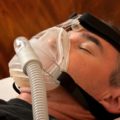
A team of researchers from the University of Wisconsin School of Medicine and Public Health recently published a study that suggests a link between asthma and obstructive sleep aponea (OSA).
OSA is a potentially dangerous sleep disorder that occurs when an individual's breathing starts and stops throughout the night. University of Wisconsin employees volunteered for the study beginning in 1998, and attended overnight sleep studies every four years.
The authors discovered that 27 percent of the participants who suffered from asthma also developed OSA within the first four years of the study. In contrast, 16 percent of participants without asthma developed OSA.
"[The study} found that pre-existent asthma was a risk factor for the development of clinically relevant obstructive sleep apnoea in adulthood over a four-year period," said the report published in the Journal of the American Medical Association. "Furthermore, the association was significantly dose-dependent on duration of asthma.
The scientists suggested that further research into the relationship between asthma and sleep apnoea would be helpful to clarify the nature of the results.
If you suffer from asthma or allergies, get the best night's sleep possible by using an allergen air purifier in your bedroom to limit the amount of airborne allergens in your home. It's also a good idea to use an allergy mattress protector, so that your mattress and bedding won't harbor dust mites, which are a known irritant for allergy sufferers. Monitor your sleep and breathing, and if either becomes compromised as a result of asthma or allergies, then you should see a doctor to find out what other prevention or control methods you should use.
Check out Allergy Be Gone to get more allergy and asthma news as it arrives!









